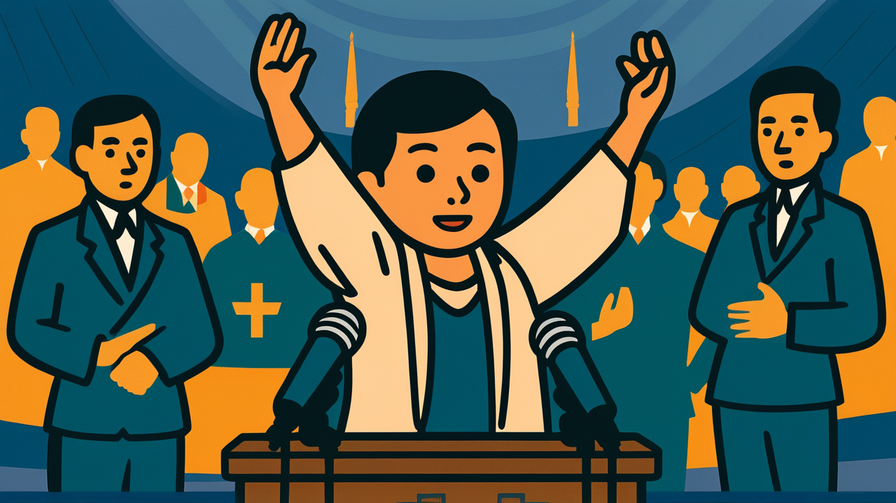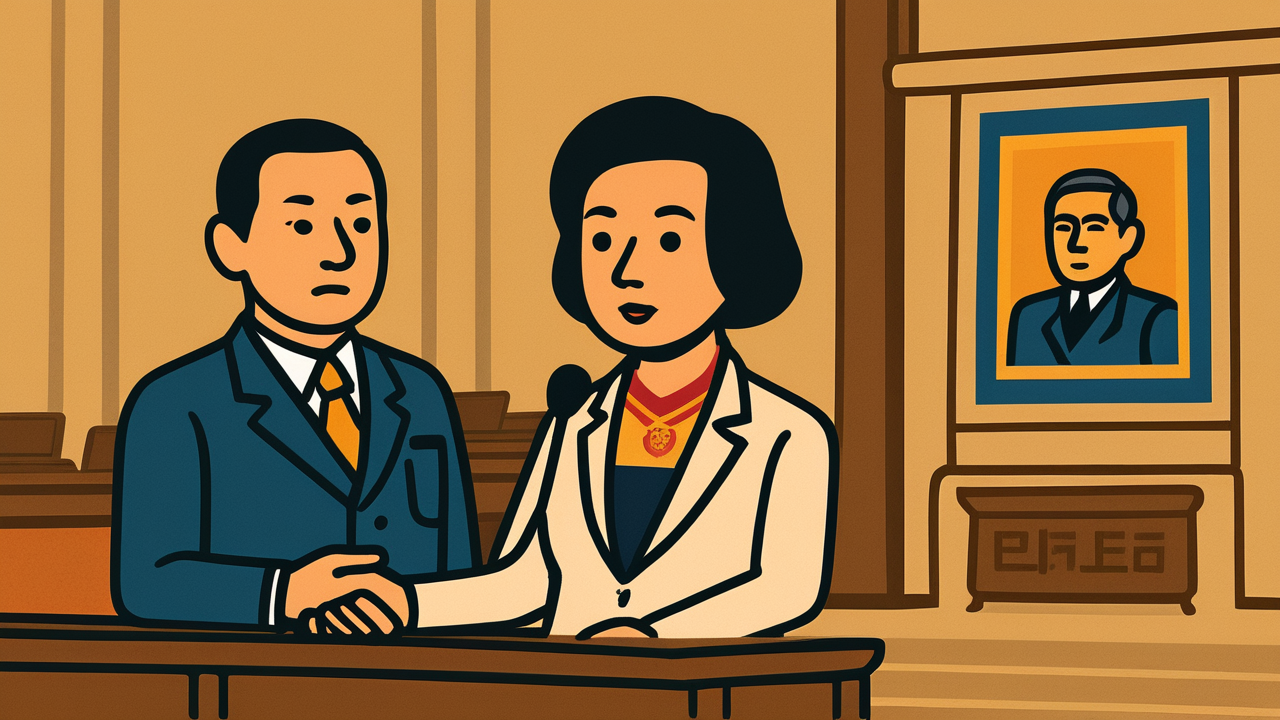[Disclaimer] This article is reconstructed based on information from external sources. Please verify the original source before referring to this content.
News Summary
The following content was published online. A translated summary is presented below. See the source for details.
Anon Nampa, a prominent Thai human rights lawyer and activist, is facing more than 29 years in prison under Thailand’s strict royal insult laws, known as lèse-majesté. The 40-year-old lawyer, who became a leading voice in Thailand’s pro-democracy movement, was charged for speeches he gave during 2020-2021 protests calling for reforms to the monarchy. Under Article 112 of Thailand’s criminal code, anyone who insults or threatens the King, Queen, or royal family can face up to 15 years in prison per offense. Anon faces multiple charges, which is why the total sentence is so long. He was particularly known for breaking Thailand’s taboo by openly discussing the monarchy’s role and budget during public rallies. Human rights organizations worldwide have condemned the sentence, calling it an attack on freedom of speech and peaceful protest.
Source: Global Voices
Our Commentary
Background and Context

Thailand has some of the world’s strictest laws protecting its royal family. The lèse-majesté law, officially Article 112, makes it illegal to insult, threaten, or defame the King, Queen, heir to the throne, or regent. What makes this law especially severe is that each instance of alleged insult can carry up to 15 years in prison, and people can be charged multiple times for different statements.
Anon Nampa wasn’t always an activist. He worked as a human rights lawyer, often defending other activists and protesters for free. Everything changed during the 2020 Thai protests, when millions of young people took to the streets demanding three things: the Prime Minister’s resignation, a new constitution, and reforms to the monarchy. Anon became famous for being the first person to publicly call for monarchy reform at a major rally, breaking a silence that had lasted decades.
In Thai society, the monarchy has traditionally been considered sacred and above criticism. School children sing the royal anthem every morning, and the King’s portrait hangs in every classroom. Until recently, even questioning the monarchy’s budget (which comes from taxpayers) was unthinkable.
Expert Analysis
Legal experts point out that Thailand’s lèse-majesté law is among the harshest in the world. Unlike defamation laws in other countries, truth is not a defense – even factual statements about the royal family can lead to prosecution if they’re deemed insulting. The law also allows anyone to file charges, not just the royal family, leading to it being used as a political weapon.
The use of Article 112 had actually decreased in recent years, but it came back strongly after the 2020 protests. Since then, over 260 people have been charged, including many teenagers. The youngest person charged was just 14 years old when they allegedly spray-painted graffiti critical of the monarchy.
International law experts argue that these laws violate basic human rights. The United Nations has repeatedly called for Thailand to amend Article 112, stating it goes against the International Covenant on Civil and Political Rights, which Thailand signed. The right to free speech includes the right to criticize government institutions, even monarchies.
Additional Data and Fact Reinforcement
The impact of lèse-majesté prosecutions extends far beyond individual cases:
– Since 2020, over 1,900 people have been prosecuted for political expression
– At least 280 people are currently facing royal insult charges
– The youngest person charged was 14; the oldest was 65
– Some defendants have received sentences totaling over 40 years
– About 150 political prisoners are currently detained, many denied bail
The economic impact is also significant:
– Thailand’s youth protest movement has affected tourism and foreign investment
– Many young educated Thais are leaving the country, creating a “brain drain”
– International companies worry about employees being charged for social media posts
– Universities report self-censorship affecting academic freedom
Related News
Thailand’s lèse-majesté cases have drawn international attention:
– In 2024, a woman received 50 years (later reduced to 28) for posting on social media
– A man got 35 years for Facebook posts about the monarchy
– Thai authorities have requested extradition of activists who fled abroad
– Several UN human rights experts have called for dropping all lèse-majesté charges
Neighboring countries have taken different approaches:
– Malaysia and Cambodia have similar laws but rarely enforce them
– Japan removed its lèse-majesté law after World War II
– European monarchies like the UK and Netherlands have no such laws
Summary

The case of Anon Nampa represents a critical moment in Thailand’s struggle between traditional reverence for the monarchy and young people’s desire for reform and free speech. His potential 29-year sentence for giving speeches shows how seriously Thailand takes royal criticism, but also how far authorities will go to silence dissent.
For Thailand’s youth, many of whom grew up with social media and global connections, these harsh sentences seem out of step with the modern world. The protests that began in 2020 were led mostly by high school and university students who questioned why they couldn’t discuss their country’s most powerful institution.
While some older Thais support keeping strong protections for the monarchy, the harsh application of Article 112 has created a generation gap and pushed political divisions deeper. As more young activists face decades in prison for their words, Thailand faces difficult questions about balancing tradition with human rights in the 21st century.
Public Reaction
The sentencing has sparked varied reactions across Thai society. Many young Thais have expressed shock and anger on social media, though carefully to avoid prosecution themselves. International human rights groups including Amnesty International and Human Rights Watch have condemned the sentence. However, some conservative Thais support the law, viewing it as protecting an important national institution.
Frequently Asked Questions
Q: What exactly is lèse-majesté?
A: It’s a French term meaning “to do wrong to majesty.” In Thailand, it’s a law making it illegal to insult or criticize the royal family, punishable by up to 15 years per offense.
Q: Why did Anon Nampa get such a long sentence?
A: He was charged with multiple counts of royal insult for different speeches he gave. Each charge can carry up to 15 years, and the sentences add up.
Q: Can tourists be charged under this law?
A: Yes, anyone in Thailand can be charged, including foreigners. There have been cases of tourists being arrested for social media posts or comments about the monarchy.
Q: Why don’t they just change the law?
A: Changing Article 112 would require political will from the government and possibly the monarchy’s approval. Many politicians fear even discussing changes could lead to them being charged under the same law.


